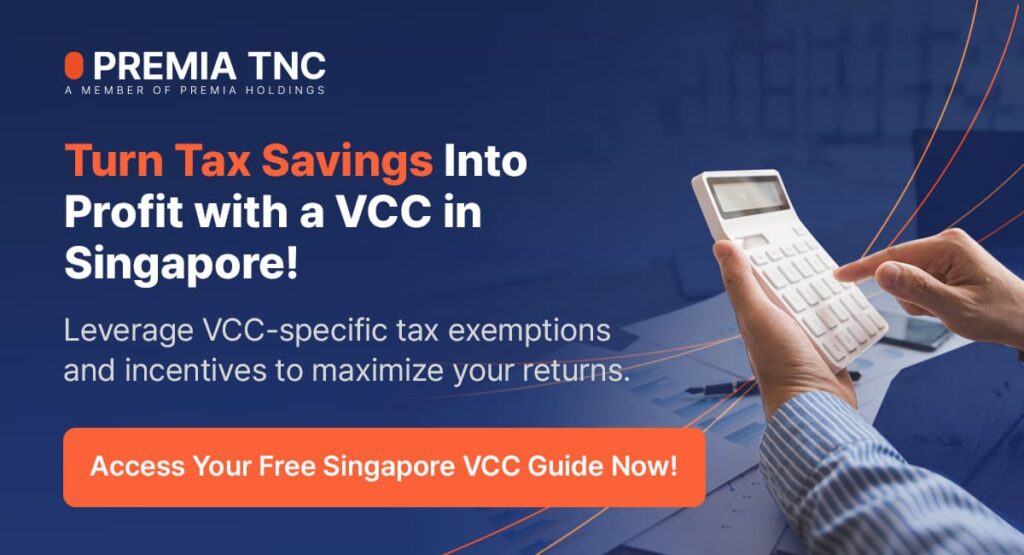

In the evolving realm of fund management, Singapore’s Variable Capital Company (VCC) framework has surfaced as a transformative force. Offering flexibility, efficiency, and a robust regulatory framework, VCC presents a compelling option for fund managers seeking to establish and manage investment funds. In this article, we will take an in-depth look at key insights into the VCC structure in Singapore, shedding light on its advantages and considerations for fund managers operating in Singapore’s vibrant financial ecosystem.
Looking into the VCC Structure in Singapore
The Variable Capital Company (VCC) is a versatile corporate structure tailored for managed investment funds, offering flexibility for various fund types and investment strategies, from traditional to alternative assets. It is easily established and cost-effective to administer, allowing for reduced fees and enhanced investor appeal. This proves to be advantageous for fund managers with an Asian investor base. The VCC has seen substantial adoption since its launch in January 2020, supported by numerous government incentives, covering expenses such as legal, tax advisory, and regulatory fees through the Variable Capital Companies Grant Scheme (VCCGS).

The reason behind the introduction of VCC in Singapore
The introduction of the Variable Capital Company (VCC) structure in Singapore aims to bolster the appeal for both local and foreign fund managers to domicile their funds in the country. Singapore’s stable governance, favorable regulatory environment, and low corporate tax rates enhance its allure as a prime location for investment managers targeting the Asia-Pacific region. With over 100 double tax treaties in place, businesses operating internationally find Singapore an advantageous base, mitigating the risk of double taxation.
The VCC framework presents a compelling alternative for fund structures compared to traditional options like limited partnerships, unit trusts, and private limited companies. Its alignment with international tax jurisdictions such as Luxembourg, Ireland, the Cayman Islands, and Mauritius further solidifies Singapore’s position as a competitive hub for fund domiciliation. The potential extension of VCCs to family offices in Singapore underscores the broad applicability and attractiveness of this corporate entity structure.
Who is able to establish a VCC in Singapore?
In Singapore, a Variable Capital Company (VCC) can be operated by a regulated financial institution approved by the Monetary Authority of Singapore (MAS), such as banks, insurance companies, or finance companies, categorized as Regulated (RFMC) or Licensed (LFMC/VCFM). A VCC requires a permissible fund manager with regulated status, known as a “Permissible Fund Manager,” to oversee all sub-funds within an umbrella VCC. Consistency in the choice of fund manager across all sub-funds is mandatory for compliance.
Who is unable to establish a VCC in Singapore?
Entities such as single-family offices and real estate managers, which are not headquartered in Singapore or lack regulatory authorization for fund management, are ineligible to establish and operate a Variable Capital Company (VCC) in the country.
What could you achieve with a VCC in Singapore?
The Variable Capital Company (VCC) legislation pertains exclusively to investment funds, prohibiting its use for operating businesses or as holding companies. According to the Securities and Futures Act, an investment fund under VCC management must fulfill specific criteria: participants lack day-to-day control, property management is centralized, contributions are pooled, and participants can receive returns from investments. Additionally, VCCs require management by a Permissible Fund Manager. While VCCs do not impose specific diversification or investment eligibility criteria, those established as mutual funds (authorized VCCs) must adhere to the eligibility and diversification rules outlined in the Code of Collective Investment Schemes.

Categories of VCC Structure in Singapore
In Singapore, there are several types of VCC structures available for investment funds. And here, we will take a look at the two main types of VCC structures in Singapore, which are the standalone VCCs and umbrella VCCs.
1. Standalone (Single fund)
Standalone VCCs are known as separate legal entities that can be set up by fund managers to establish individual investment funds. Each standalone VCC operates independently with its own assets, liabilities, and investment objectives. Standalone VCCs are suitable for fund managers who prefer a straightforward structure for managing a single investment fund. They offer flexibility in terms of investment strategies and portfolio management.
2. Umbrella (Multiple sub funds)
Umbrella VCCs are known as a collective structure that allows multiple sub-funds, each with its own investment objectives and portfolio, to be housed under a single VCC entity. Each sub-fund within an umbrella VCC is legally segregated, meaning that the assets and liabilities of one sub-fund are distinct from those of other sub-funds within the same umbrella VCC.
Umbrella VCCs offer economies of scale and administrative efficiency for fund managers who oversee multiple investment strategies or fund products. They allow for centralized management and administration while maintaining segregation of assets and liabilities among different investment strategies.
Premia TNC’s assistance in setting up a VCC in Singapore
Whether you are contemplating re-domiciliation or looking deeper into the array of tax incentive schemes tailored for VCCs, Premia TNC is here to elevate your investment strategy. Our commitment is to unlock the complete potential of your fund by serving as your strategic ally in navigating the intricate landscape of the VCC structure in Singapore.
What is a Variable Capital Company (VCC) in Singapore?
A VCC is a flexible corporate structure introduced by MAS in 2018 for collective investment schemes. It allows for the easy issuance and redemption of shares without shareholder meetings.
What are primary benefits of implementing a VCC in Singapore?
Tax Efficiency: Enjoy tax exemptions on specified income for qualifying funds.
Flexibility: Issue and redeem shares without shareholder meetings.
Attractiveness: Recognized internationally, enhancing appeal to investors.
What are the regulatory requirements for setting up a VCC in Singapore?
Eligibility: Must be a collective investment scheme managed by an MAS-licensed fund manager.
Compliance: Adhere to MAS regulations on capital, governance, and investor protection.
Appointments: Directors must meet fit and proper criteria; custodians may be required for certain funds.
Reporting: Submit periodic reports to MAS; disclose information to investors as required.
What types of funds fall into the VCC structure in Singapore?
VCCs can be used for a wide range of funds, including traditional mutual funds, hedge funds, and private equity funds, among others. The flexibility of the VCC structure makes it suitable for various investment strategies and asset classes.





















